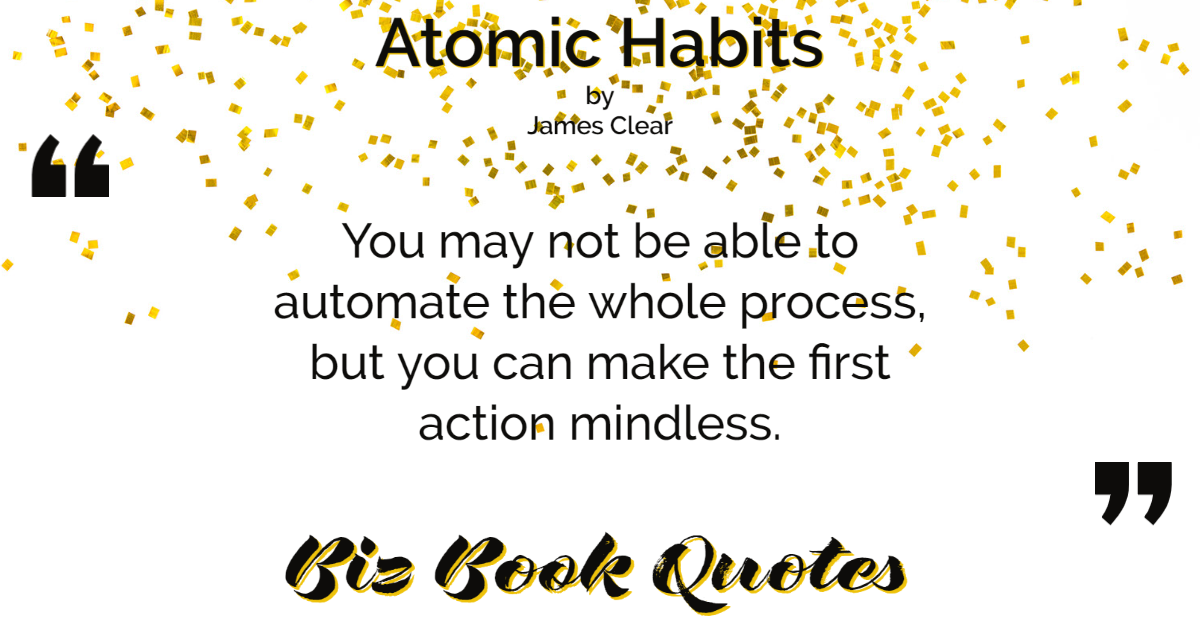 |
You may not be able to automate the whole process, but you can make the first action mindless.
|
164 |
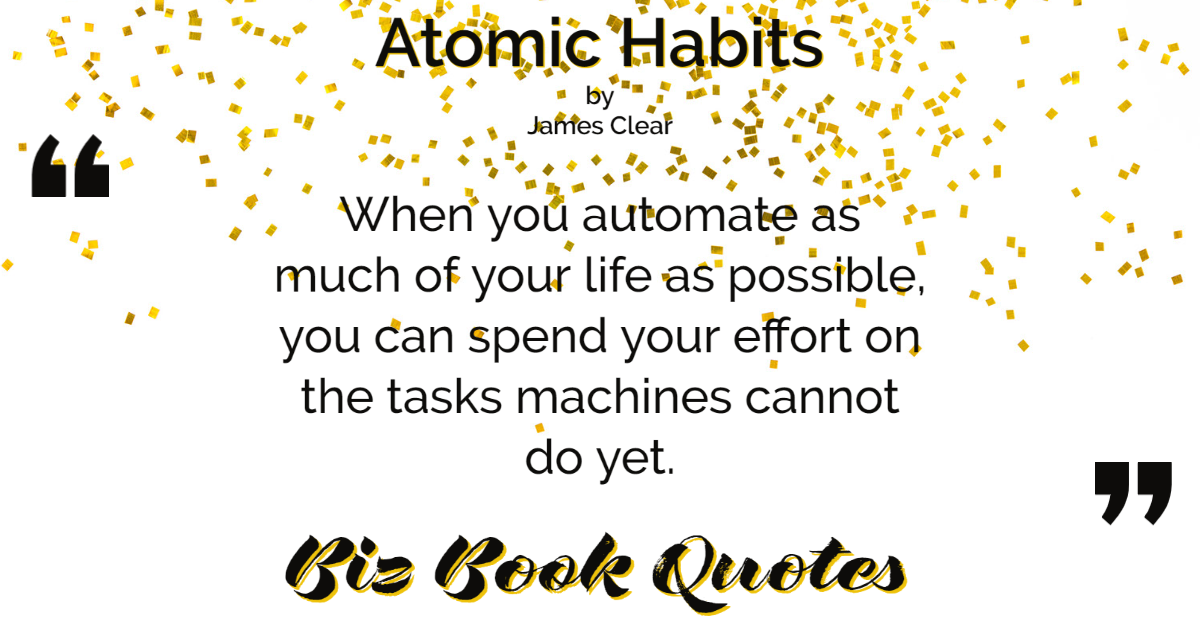 |
When you automate as much of your life as possible, you can spend your effort on the tasks machines cannot do yet.
|
174 |
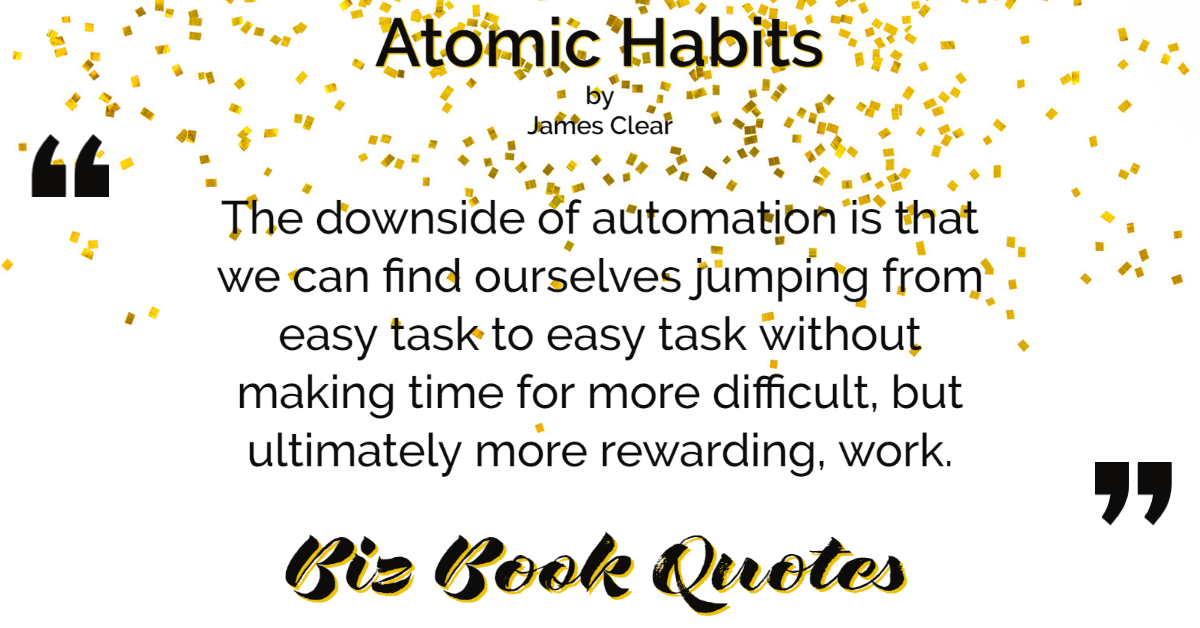 |
The downside of automation is that we can find ourselves jumping from easy task to easy task without making time for more difficult, but ultimately more rewarding, work.
|
174 |
 |
When working in your favor, automation can make your good habits inevitable and your bad habits impossible. It is the ultimate way to lock in future behavior…
|
175 |
 |
Routine work can be outsourced or automated: artistic, empathic, nonroutine work generally cannot.
|
30 |
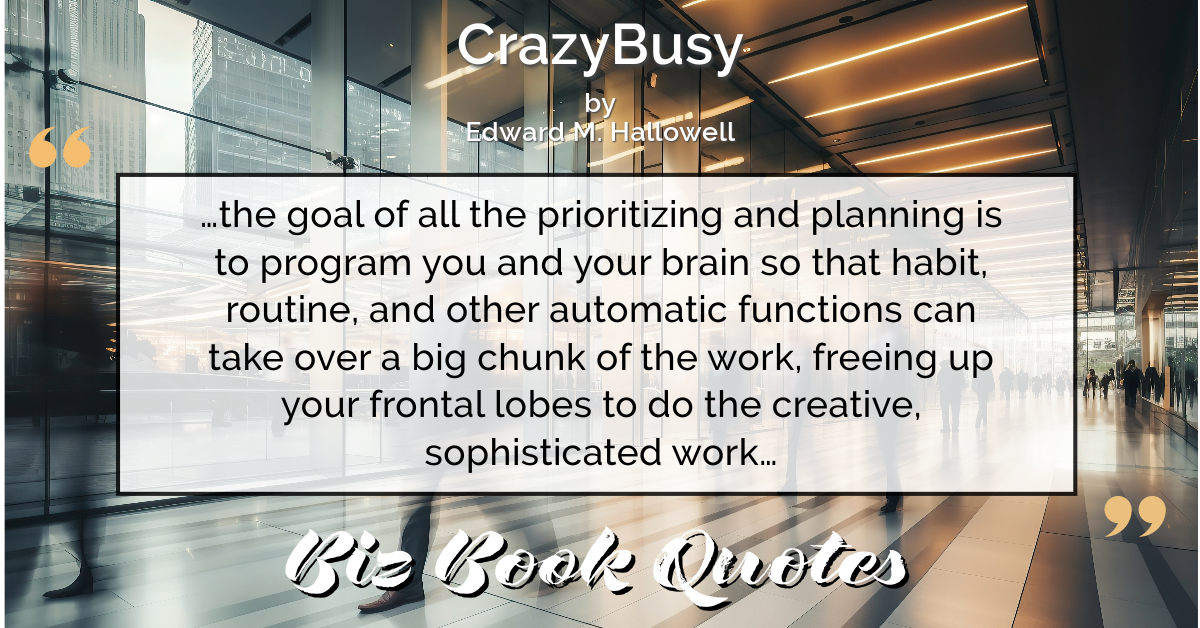 |
…the goal of all the prioritizing and planning is to program you and your brain so that habit, routine, and other automatic functions can take over a big chunk of the work, freeing up your frontal lobs to the creative, sophisticated work…
|
050 |
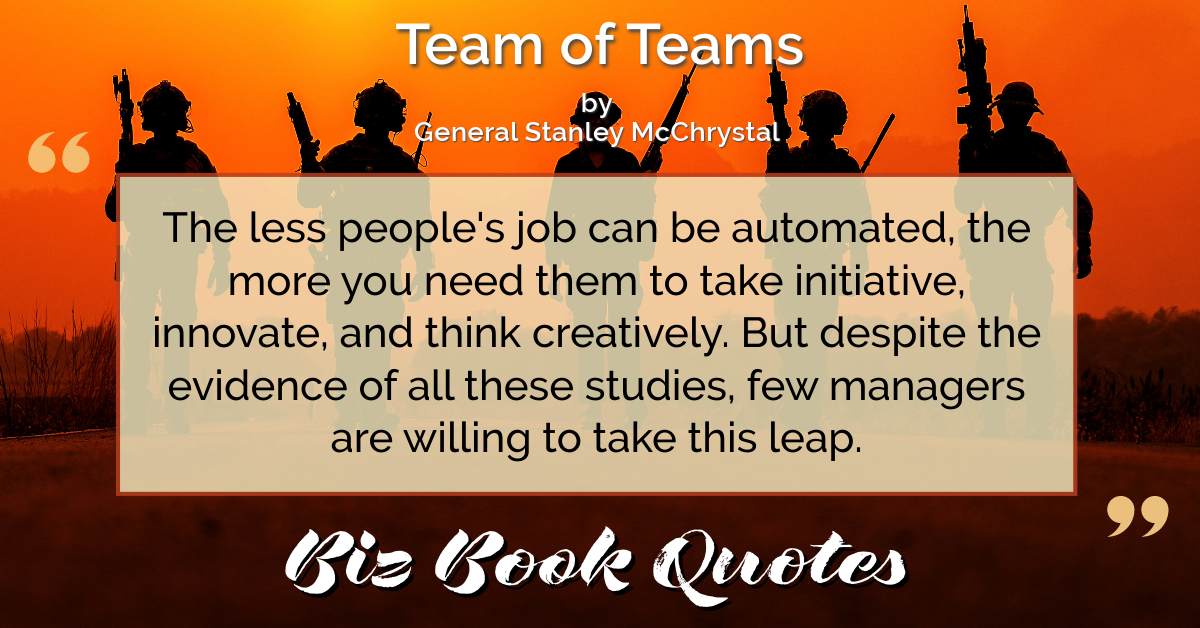 |
The less people’s job can be automated, the more you need them to take initiative, innovate, and think creatively. But despite the evidence of all these studies, few managers are willing to take this leap.
|
212 |
 |
In a world enriched by abundance but disrupted by the automation and outsourcing of white-collar work, everyone, regardless of profession, must cultivate an artistic sensibility… today we must all be designers.
|
069 |
 |
Give your customers something precious, something that cannot be easily scaled, automated, or commoditized.
|
311 |
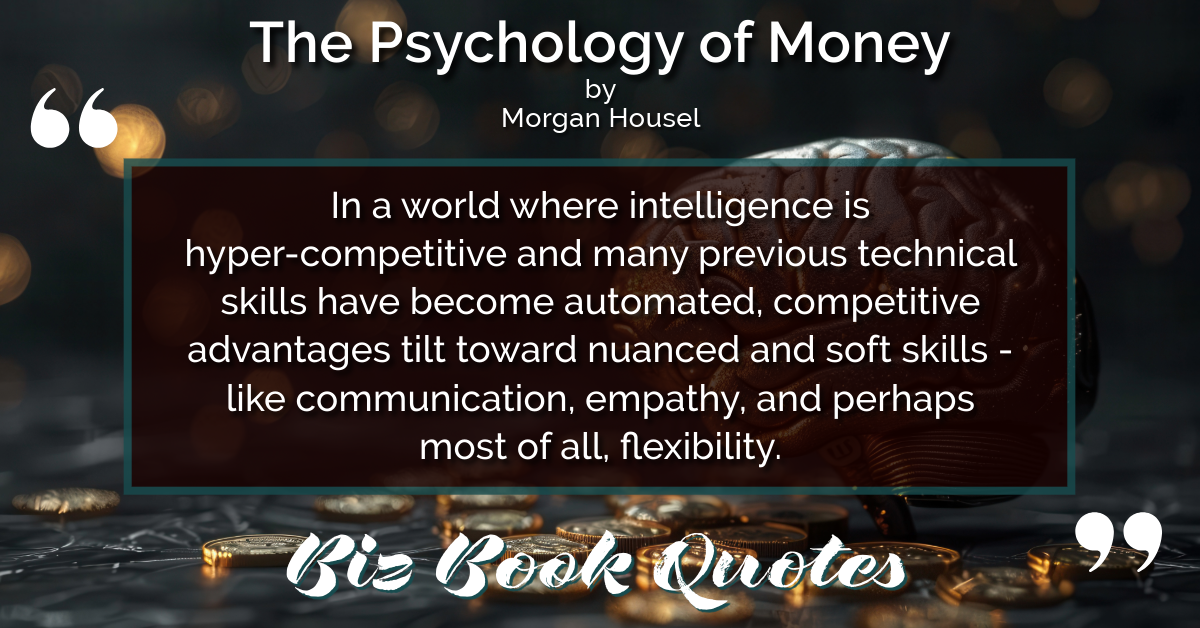 |
In a world where intelligence is hyper-competitive and many previous technical skills have become automated, competitive advantages tilt toward nuanced and soft skills – like communication, empathy, and perhaps most of all, flexibility.
|
109 |